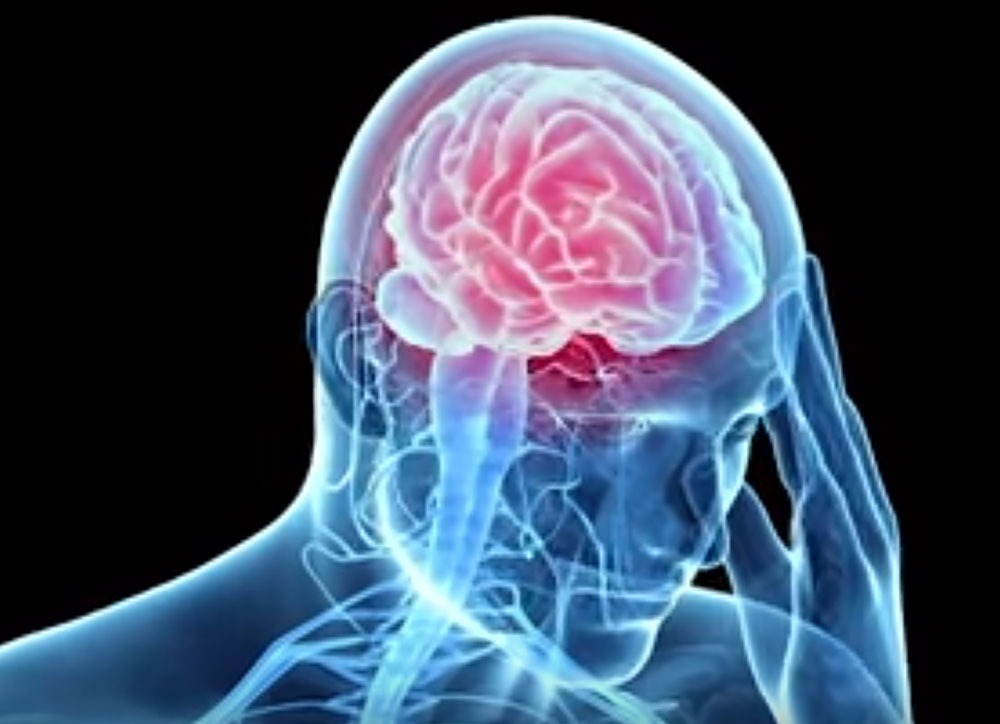Traumatic Brain Injuries: Let Us Help Guide You

Brain injury cases can be complex; they require extreme detail-orientated skills from the start of your case, while also paying close attention to comprehensive medical records. Additionally, consulting an experienced, knowledgeable, and highly organized personal injury attorney before pursuing your claim is not only very important, but can also be critical to the success of your case.
It is vital to have legal assistance during these difficult times from a team of Personal injury attorneys with the experience and resources necessary to ensure your interests are protected.
The firm not only needs to have the experience and resources in the legal field but they must also be educated on traumatic injuries and how they often go unnoticed. For us, we frequently conduct mock juries to determine the best tactics, strategies, and arguments, to use in your case. As a result, our techniques help us assure the best and highest quality outcome for our clients.
What is a Traumatic Brain Injury?
For a free legal consultation, call (725) 900-9000
A Traumatic Brain Injury (TBI) is a serious, debilitating, and/or deadly injury resulting from trauma to the head. These injuries occur from many different accidents such as: trips, slips and falls, automobile collisions, motorcycle crashes, and trucking accidents.
For example, an individual may suffer a fractured skull, brain bleed, and even a coma just from one severe impact on the head – but one may go initially unnoticed.
The fact is, traumatic brain injuries are very sneaky and often have less than noticeable signs? Although they are not always life-threatening, these injuries can have serious side effects on one’s physical, cognitive, and emotional abilities. An experienced attorney who is highly aware of what injuries may result from different types of accidents can help get the settlement you need.
A Traumatic Brain Injury may be caused by external head trauma resulting from violent movement of the skull or from a lack of oxygen to the brain.
Symptoms of a Brain Injury:
There are a wide range of symptoms involving brain injuries. Some of these systems include:
- Loss of Consciousness (You only need a second, stay tuned for more details!)
- Headache
- Blurred Vision
- Loss of Balance and/or Coordination
- Sleep Pattern Changes
- Extreme Sensitivity to Light and/or Sound
- Nausea or Vomiting
- Fatigue
- Mood Changes (Often with Rapid Onset)
- Memory Loss of Difficulty Remembering Things (During, On, or After the Incident)
Did You Know Brain Trauma Can Happen Without Impact to the Head?
Click to contact our personal injury lawyers today
The most common myth surrounding TBI’s is that one must be directly struck on the head or knocked unconscious in order to suffer an injury to the brain. However, recent studies have found that whiplash, often experienced in automobile and motorcycle accidents, caused brain injury in over 20% percent of cases. Although 20% does not seem high, what most attorney’s do not realize is that even a slight second can qualify as unconsciousness. How many times have we heard: “I remember I was hit on the side of my vehicle, I remember swerving over multiple lanes and the LAST thing I remember was me being stuck in my rolled-over vehicle.”
Complete a Free Case Evaluation form now
Ex: Maria was rear-ended, thus, causing her car to flip multiple times coming to a rest upside down. She remembers being hit, but after the hit she does not remember being flipped, rolling over, and the end result of the crash. Her gap in memory may signal a loss of consciousness. We look for details like these and pay close attention to our client’s description of the crash.
- The key phrase to understand here is “last thing I remember.” These phrases often go unnoticed by most personal injury lawyers and insurance companies. These phrases indicate that the victim did, in fact, lose this is what makes experienced personal injury attorneys, like us, different from many other firms across the nation.
These injuries can happen even in low-impact accidents. In situations like these, brain injuries, especially diffuse axonal injuries, go unrecognized by emergency responders, doctors, and even personal injury attorneys. It is important to keep in mind that insurance companies will try to dismiss and label collisions as “minor impact accidents” in hopes of avoiding any liability related to the brain. However, this certainly is not the case, and it is important to be examined by a doctor who is well-versed in the area of brain injuries as well as the science, research, and examination that supports these injuries. Well-trained medical responders will be detail oriented and patient when reading the victim’s medical reports and examining medical imaging for potential brain injuries, even in low-impact situations.
Whiplash – Whiplash is the tear of the intervertebral disc and anterior longitudinal ligament. It may cause persistent neck, scapular, and shoulder pain, necessitating disc removal and interbody fusion. How many times have we heard that during the impact of the accident that victims did not feel pain? However, in the minutes and days after, they begin to complain of upper body and lower body pain? This is a sign of whiplash which is a serious condition that needs to be looked at, especially after low-impact crashes where the signs might not be initially obvious.
Remember to always listen to your body, tell your attorney your issues, and get the right help you need!
Myths about Brain Trauma: Issues Skilled Attorney’s Know are FALSE
Myth #1- You Must Lose Consciousness:
- This myth is further disproven in instances similar to whiplash where the head jerks forward and the movement suddenly ends. Additionally, Whiplash has been shown in certain cases to cause a disruption in the nerve cells of the brain.
Myth #2- A Negative MRI or CT-scan Depicts that No Traumatic Brain Injury Exists:
- Microscopic lesions in the brain and damage to the neurons can often be missed on CT-Scans and MRIs. This tactic is often pushed by insurance adjusters and must be condemned. experienced medical providers and attorneys can depict the smallest signs of trauma to the brain. These thorough skills can dramatically alter the course of your case.
Myth #3- You May Recover Very Quickly from a Brain Injury:
- It is important to keep in mind that claims adjusters and insurance defense attorneys often attempt to minimize the extent of a brain injury by alleging that the ailment is minor and the claimant will quickly recover. Some symptoms of brain injury are minor and subtle, such as memory loss
- However, what happens when this memory loss affects your ability to work, daily life-style tasks, and overall emotional well-being? These are all factors we can include in your financial recovery: past medical costs, future medical costs, present and future wages, pain and suffering, etc.
Basic Understanding of The Brain:
Brain Functions:
- Vision-Occipital Lobe Damage = Blindness
- Taste
- Cognition
- Emotion
- Speech
- Language
- Hearing
- Motor Cortex unable to Perform Bodily Functions/Movements
- Sensory Cortex
- Autonomic Functions
- More than 70% of the patients continued to complain of symptoms referable to the original accident after it occurred.
- Psychological Suffering: Observers tend to view the pain complaints with suspicion and disbelief, akin to complaints of dizziness, fatigue, and molasses.
What Should I Look for in Choosing a Traumatic Injury Attorney to Represent Me?
There are many traumatic brain injury attorneys’ out there, especially in Nevada, and it is important to be aware of what separates the attorneys qualified to handle your Traumatic Brain Injury claim from those who are not. Some of the main factors include:
We Get You Diagnosed Using the Best Equipment Available:
DTI- Diffusion Tensor Imaging: Measures the “electrical cables” of the human body.
TBI can produce microscopic changes that cannot be seen on CT scans that are scattered throughout the brain. This category of injuries is called diffuse brain injury, which may occur with or without an associated mass lesion.
We refer our clients to special DTI MRI’s in order to distinguish how much oxygen the brain has lost during the time of the accident and what significant damages have been acquired. We also believe in Fiber Tracking (Tractography)
Fiber Tracking uses the diffusion tensor to track fibers along their whole length. Fiber tracking can identify most of the brain’s white matter tracts and how many are damaged.
At Van Law Firm, we have a special group of doctors and Radiologists whom we trust to guarantee finding the slightest damage on the brain.
Elements of a Brain Injury Lawsuit
- Duty of Care – An individual must exercise a reasonable standard of care in an attempt to prevent harm to others. For example, a Doctor has a duty to perform up to a level of standard of care established by the medical community.
- Breach of Duty – An individual breached their duty of care. For instance, going back to the Doctor example, the Doctor performs a surgery in such a way it is considered unacceptable in the medical community. They have breached their professional duty as a Doctor because a reasonable and prudent surgeon would not have acted in this manner under the circumstances.
- Causation – The defendant’s negligence must have been the direct responsibility for the injury or damage sustained.
- Damages – The victim’s injuries caused either economic or non-economic damages.
What type of Compensation Could You Receive?
- Medical Bills – Victims may claim compensation for any medical bills related to the injury.
- Loss of Enjoyment – Your attorney may also help you recover compensation for the inability to participate in activities you once enjoyed.
- Lost Wage – Due to injuries, compensation for lost wages resulting from the accident will be sought. Additionally, victims may also receive compensation for damages for their future earnings.
Your Rights – Important to NOT Only You but US as well
If you or your loved one has been in a traumatic accident that has resulted in great bodily harm such as brain trauma, you have the right to be fairly compensated. These injuries not only change your lifestyle, but they will also result in lifelong consequences. Some of these consequences include: costly medical and future medical expenses, long-term rehabilitation, and challenges making it difficult and even impossible to return to work, conduct daily tasks, and have the opportunity to return to your regular/traditional life.
Contact us to get the settlement and justice you deserve. Our detail-oriented firm can get you the right compensation you deserve.
No obligation consultations are always free.
Let Us Help You! Call Now: (725) 900-9000


